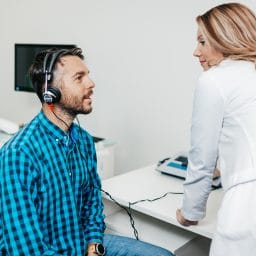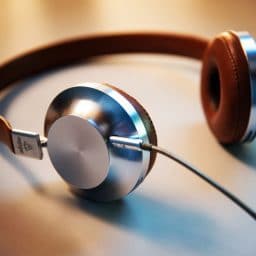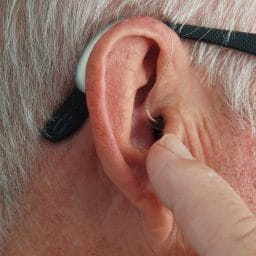Research Shows Tinnitus Is More Severe with Hearing Loss

Do you ever notice an unexplainable ringing, roaring, hissing, whistling, buzzing or humming sound with no source? If so, you may be experiencing tinnitus. Tinnitus is different for everybody. Sometimes it affects one ear, and sometimes it affects both. For some, it is quiet, and for others it is like standing under bells. New research…
What Is Mild Hearing Loss?

When you hear the words “mild hearing loss,” you may think of a harmless condition. But the truth is, even a mild loss of hearing can greatly impact your daily life, including your relationships and your health. Below we review what you need to know about mild hearing loss. What Does “Mild Hearing Loss” Refer…
New Study Further Links COVID-19 with Hearing Loss & Tinnitus

Even though researchers have learned a lot about COVID-19 over the past year, they are just beginning to look at the long-term impact of the virus. New research out of the University of Manchester and NIHR Manchester Biomedical Research Centre (BRC) used data gathered throughout the pandemic to further link COVID-19 with hearing and auditory…
4 Ways to Protect Your Hearing

While there is nothing you can do about your genetics or getting older, there is one cause of hearing loss you can do something about – exposure to noise. Below we review four things you can do protect your ears. Understand Noise-Induced Hearing Loss Sound is measured in decibels (dB). Anything measuring more than 85…
The Role Genetics Play in Hearing Loss

There are many reasons a person may develop hearing loss, including environmental and genetic factors. Our genes are responsible for carrying instructions to our cells about how to grow and function. There are many genes that contribute to our ability to hear, but that means that if any of them mutate – or develop in…
How Do Biomarkers Help Identify Hearing Loss?

Do you feel that you have poor hearing despite passing a hearing test? This phenomenon, known as hidden hearing loss, is not well-understood by researchers or medical professionals. However, two newly discovered biomarkers of brain function may be able to help with the identification and treatment of hidden hearing loss. What Is a Biomarker? Biomarker…
Can Lost Hearing Be Restored?

Hearing loss is extremely common, affecting an estimated 48 million Americans. Few are surprised to learn that hearing loss has a significant effect on quality of life, causing trouble communicating, strained relationships, decreased earning power, feelings of loneliness, increased chance of falls and greater chance of cognitive decline. After receiving their diagnosis, many people’s first…
Are Leaf Blowers Harming Your Hearing?

With fall slowly turning into winter, almost all the leaves have made their short migration from tree branches to ground. While clearing your yard may be a nuisance, it can be made even worse if you use a gas-powered leaf blower. This is because even though you are shaving minutes off this dreaded chore, you…
Black Friday Sale
Invest in your future and don’t let outdated technology be a barrier in 2021. From November 23rd to 27th, we’re offering 20% off the price of new hearing aids if you bring in your old devices to trade in. Not only are you setting yourself up for success with state-of-the-art hearing aids, you are helping…
Six Things to Do Before Buying a Hearing Aid

The average person waits seven years before they seek help for their hearing loss. While seeking treatment as early as possible is ideal, whenever you decide to finally buy a hearing aid is the right time. Before making that purchase, there are six things you should do. Get Your Hearing Tested In order to select…